
IMMUNOPHARMACOLOGY AND IMMUNOTOXICOLOGY
Scope & Guideline
Innovating Insights in Immunopharmacology and Toxicology
Introduction
Aims and Scopes
- Immunopharmacology:
The journal emphasizes studies exploring the pharmacological effects of drugs on the immune system, including the mechanisms by which these drugs modulate immune responses. - Immunotoxicology:
Research on the adverse effects of substances on the immune system is a core area, investigating how various chemicals and drugs can lead to immune dysfunction or toxicity. - Inflammatory Diseases:
A significant focus is placed on understanding the role of the immune system in inflammatory diseases and the therapeutic potential of various compounds in mitigating these conditions. - Cancer Immunotherapy:
The journal covers advancements in immunotherapy for cancer treatment, including the role of immune checkpoint inhibitors and other novel therapeutic strategies. - Natural Products and Traditional Medicine:
Research involving natural compounds and traditional medicinal practices is also highlighted, showcasing their immunomodulatory effects and potential therapeutic applications. - Mechanistic Studies:
The journal supports mechanistic studies that elucidate the cellular and molecular pathways involved in immune responses to pharmacological agents.
Trending and Emerging
- Inflammation and Immunity:
There is an increasing focus on the relationship between inflammation and immune responses, especially in chronic diseases and conditions like obesity and diabetes. - Microbiome and Immunity:
Research investigating the gut microbiome's role in modulating immune responses and its implications for health and disease is on the rise, highlighting the interconnectedness of microbiota and immunity. - Personalized Medicine:
Emerging themes in personalized medicine, particularly in cancer immunotherapy, are gaining attention as researchers explore tailored approaches to treatment based on individual immune profiles. - Nanomedicine:
The use of nanotechnology in drug delivery systems and its potential to enhance immune responses or reduce toxicity is becoming a prominent area of study. - Regenerative Medicine:
Investigations into the role of immune modulation in regenerative medicine, particularly through stem cells and tissue engineering, are increasingly featured in recent publications. - Therapeutic Targeting of Immune Checkpoints:
The therapeutic potential of targeting immune checkpoints beyond cancer treatment is gaining momentum, with research exploring their role in various immune-related conditions.
Declining or Waning
- Vaccine Development:
Although vaccines remain a relevant topic, the specific focus on vaccine development has decreased, possibly due to a saturation of research in this area following the COVID-19 pandemic. - Traditional Immunosuppressants:
Research on classical immunosuppressants, such as cyclosporine and tacrolimus, has waned as newer therapies and biological agents gain attention for their effectiveness and safety. - Toxicology of Specific Drugs:
While immunotoxicology remains a critical area, there is a noticeable decrease in studies focusing on the toxicological evaluation of specific drugs, likely due to the increasing interest in broader immunological mechanisms. - Autoimmune Diseases:
Research specifically targeting autoimmune diseases has seen a decline, possibly overshadowed by more comprehensive studies on overall immune modulation and therapy.
Similar Journals
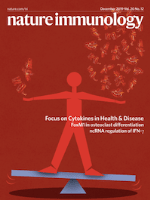
NATURE IMMUNOLOGY
Exploring the intricacies of the immune system for a healthier tomorrow.NATURE IMMUNOLOGY is a premier academic journal published by NATURE PORTFOLIO, dedicated to advancing the field of immunology. With an impressive impact factor that reflects its esteemed position, this journal ranks in the top quartile (Q1) of renowned categories, including Immunology and Allergy. Serving as a crucial platform for researchers, professionals, and students, NATURE IMMUNOLOGY showcases cutting-edge research, comprehensive reviews, and insightful perspectives that drive innovation in immunological science. Based in the United Kingdom, this journal has been a vital contributor to the global discourse on immune responses and related diseases since its inception in 2000. Researchers can benefit from its rigorous peer-review process, ensuring that only high-quality studies are disseminated, thus enhancing their academic pursuits and practical applications. Explore the latest findings and trends within this flourishing discipline, making NATURE IMMUNOLOGY an essential resource for anyone engaged in the study of the immune system.

VIRAL IMMUNOLOGY
Shedding light on the immunological responses to viral challenges.Viral Immunology, published by Mary Ann Liebert, Inc, stands as a prominent journal dedicated to advancing the understanding of the interplay between viral infections and host immune responses. With a strong focus on immunology, molecular medicine, and virology, the journal provides a platform for the dissemination of high-quality research findings and innovative methodologies that could shape the future of these critical fields. Although it currently holds a Q3 rating across its relevant categories and a respectable ranking within the Scopus database, Viral Immunology continues to strive for excellence with a commitment to publishing influential research that informs both academic and clinical practices. The journal accepts submissions in various formats—original research, reviews, and commentaries—catering to a diverse readership that includes researchers, professionals, and students engaged in the biological and medical sciences. Readers can anticipate insightful articles that address urgent challenges in immunological responses to viral infections, paving the way for new therapeutic strategies and public health initiatives.
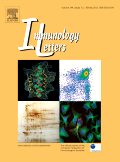
IMMUNOLOGY LETTERS
Transforming Discoveries into Clinical ApplicationsIMMUOLOGY LETTERS, published by Elsevier, is a distinguished journal in the field of immunology, focusing on the latest advancements and findings that significantly influence immunological research and clinical applications. Established in 1979, the journal has evolved to cater to a global readership, featuring high-quality peer-reviewed articles across a diverse spectrum of topics related to immunity and allergic responses. With an impressive Q2 category ranking in both Immunology and Allergy as of 2023, it holds a strong position within the scientific community, evidenced by its commendable Scopus rankings (Rank #71/233 in Medicine - Immunology and Allergy and Rank #85/236 in Immunology and Microbiology - Immunology). While primarily subscription-based, the journal aims to foster knowledge dissemination that encourages collaboration among researchers and practitioners alike, making significant contributions to the understanding of immune mechanisms. The journal is integral for educators, students, and professionals aiming to stay abreast of current trends and breakthroughs in the immune system's intricate functions.

ImmunoTargets and Therapy
Pioneering Discoveries in ImmunotherapyImmunoTargets and Therapy is a leading open access journal published by DOVE MEDICAL PRESS LTD, dedicated to advancing the field of immunology and its various therapeutic applications. Since its inception in 2012, the journal has rapidly become a vital resource for researchers, professionals, and students, achieving notable recognition with a Q1 ranking in both Immunology and Immunology and Allergy categories as of 2023. With an impressive Scopus ranking of #22 out of 233 in Medicine - Immunology and Allergy, and #25 out of 236 in Immunology and Microbiology, this journal maintains a 90th percentile standing in its field. ImmunoTargets and Therapy not only publishes original research articles, reviews, and clinical studies, but also fosters an inclusive platform for the dissemination of innovative findings critical to the fight against immunological disorders. Based in New Zealand, it serves a global audience, promoting knowledge exchange and collaboration through its open access model.
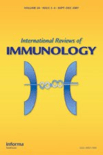
INTERNATIONAL REVIEWS OF IMMUNOLOGY
Unlocking Insights in Immunology and AllergyINTERNATIONAL REVIEWS OF IMMUNOLOGY, published by Taylor & Francis Inc, is a leading academic journal that has been a cornerstone of immunological research since its inception in 1986. With an impressive impact factor and ranked in the top quartiles of its field (Q2 in both Immunology and Allergy), this journal offers a critical platform for the dissemination of influential findings and advancements within immunology. Spanning a diverse array of topics, from basic immune mechanisms to clinical applications, it aims to support the global scientific community in enhancing immunological understanding and therapeutic interventions. Researchers and professionals alike benefit from insights provided by renowned contributors, ensuring that the journal remains relevant in a rapidly evolving field. Directly accessible through subscription or institutional access, INTERNATIONAL REVIEWS OF IMMUNOLOGY is committed to fostering collaboration and innovation, making it an essential resource for anyone involved in immunological research and practice.
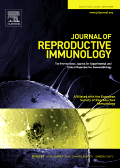
JOURNAL OF REPRODUCTIVE IMMUNOLOGY
Fostering interdisciplinary dialogue for reproductive health.The JOURNAL OF REPRODUCTIVE IMMUNOLOGY, published by Elsevier Ireland Ltd, stands as a pivotal platform for exploring the intricate interactions between reproductive health and the immune system. With an ISSN of 0165-0378 and an E-ISSN of 1872-7603, this esteemed journal spans over four decades, from 1979 to 2024, contributing significantly to the fields of Immunology, Reproductive Medicine, and Obstetrics and Gynecology. Currently ranked in Q2 for Immunology and Allergy and Q1 for both Obstetrics and Gynecology and Reproductive Medicine, it serves as an invaluable resource for researchers, professionals, and students dedicated to advancing knowledge in reproductive health. The journal’s notable impact factor and rigorous peer-review process underscore its commitment to high-quality research, making it an essential reference point for ongoing studies in this ever-evolving discipline. By promoting interdisciplinary discussions and pioneering research findings, the JOURNAL OF REPRODUCTIVE IMMUNOLOGY fosters a deeper understanding of the immune mechanisms that influence reproductive outcomes.

IMMUNOLOGICAL REVIEWS
Exploring the Frontiers of Immunology and Allergy Research.IMMUNOLOGICAL REVIEWS is a prestigious journal published by Wiley, renowned for its comprehensive and insightful contributions to the field of immunology. Established in 1969, this journal has become an essential resource for researchers, practitioners, and students interested in the latest advancements in immunological science, specifically focusing on both clinical and basic immunology as well as allergy studies. With an impressive Q1 ranking in both Immunology and Immunology and Allergy categories, and a prominent placement in the Scopus ranks (23/233 and 26/236 in their respective fields), this journal consistently showcases high-quality, peer-reviewed articles that significantly impact our understanding of immune responses. Although Open Access options are not available, the journal remains highly valuable, providing in-depth reviews and perspectives that foster further research and dialogue in immunological sciences. With a commitment to excellence, IMMUNOLOGICAL REVIEWS serves as a vital platform for disseminating knowledge, fostering scientific collaboration, and advancing the field toward innovative healthcare solutions.

IMMUNOLOGIC RESEARCH
Connecting Researchers to the Heart of ImmunologyIMUNOLOGIC RESEARCH, published by Springer, is a prestigious journal dedicated to advancing the field of immunology. Since its inception in 1986, this journal has provided a vital platform for researchers, practitioners, and students to share groundbreaking studies and innovative findings that influence clinical and laboratory practices in immunology. With an impact factor that reflects its importance, being ranked in the Q2 category for the year 2023 and positioned at 98th out of 236 in Scopus rankings for Immunology, it is recognized among its peers for the quality of its publications. The journal emphasizes rigorous peer review and encourages submissions across a diverse range of topics including but not limited to immune responses, vaccine development, and disease mechanisms. Though it does not currently offer open access, its insightful articles remain crucial for professionals seeking to stay at the forefront of immunological research. Designed for a broad audience within the scientific community, IMMUNOLOGIC RESEARCH continues to foster discovery and discussion that shapes our understanding of immune function and its implications for health and disease.
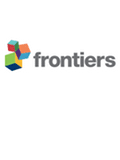
Frontiers in Immunology
Pioneering Research at the Intersection of Immunology and InnovationFrontiers in Immunology is a leading open-access journal published by FRONTIERS MEDIA SA since 2010, dedicated to advancing knowledge in the field of immunology. With an impressive Q1 ranking in both Immunology and Allergy as of 2023, this journal exemplifies excellence in research dissemination, positioning itself among the top 22% of relevant literature in the discipline. The journal, based in Switzerland, emphasizes its commitment to open science by ensuring all published research is freely accessible, fostering collaboration and innovation among researchers, professionals, and students alike. With substantial visibility demonstrated by its ranks within the Scopus database—ranked #52 out of 233 in Immunology and Allergy, and #58 out of 236 in Immunology and Microbiology—Frontiers in Immunology serves as a vital platform for cutting-edge research. Researchers are invited to contribute original investigations and reviews that expand the understanding of immune mechanisms, therapeutic advancements, and clinical applications, making it a cornerstone for those looking to push the boundaries of immunological science.
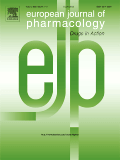
European Journal of Pharmacology
Delivering cutting-edge findings from the forefront of drug research.The European Journal of Pharmacology, a prestigious publication by Elsevier, serves as a vital resource in the field of pharmacology, offering rich insights into drug development and therapeutic applications. Since its inception in 1967, this journal has evolved to encompass groundbreaking research, including pharmacokinetics, toxicology, and innovative pharmacological methodologies, making it an essential platform for researchers and professionals alike. With an impressive impact factor that places it in the Q1 category of pharmacological journals and a Scopus ranking of #49 out of 313, the journal is recognized in the 84th percentile within its category, solidifying its significance in the academic community. Although the journal is not open access, it continues to attract contributions from leading scientists worldwide, ensuring that cutting-edge findings are disseminated effectively. The European Journal of Pharmacology not only highlights advancements in drug discovery and clinical applications but also promotes interdisciplinary collaboration, ultimately contributing to the progress of healthcare globally.